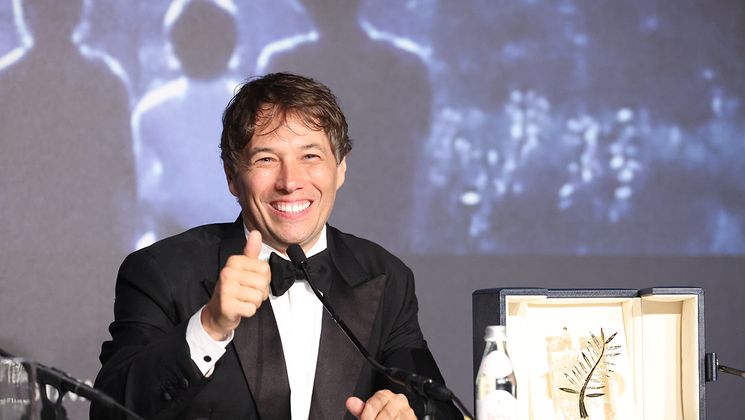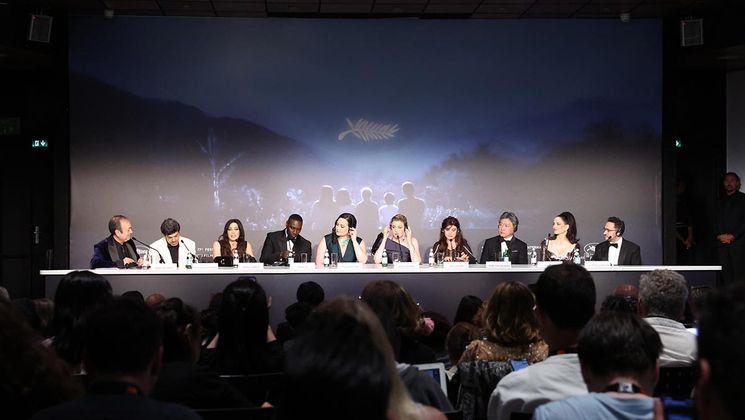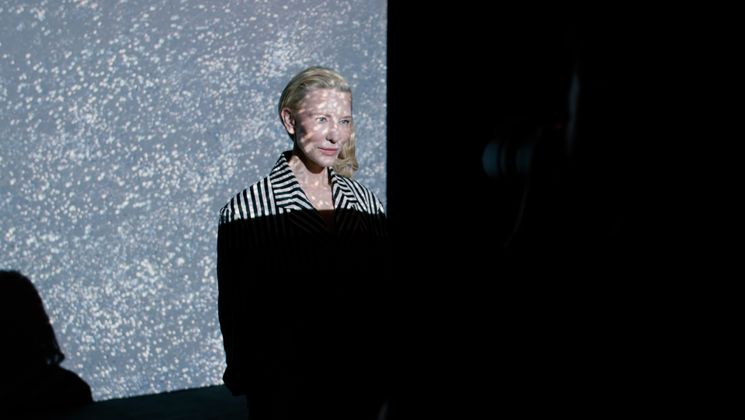Rendez-vous with… Jane Fonda
An actress, producer, writer, feminist and activist Jane Fonda breathes as much life into her roles as to her convictions. From Broadway to the singular Barbarella (1968) right up to the Oscar for Best Actress for her role in Klute (1971), this actress has left an enduring mark on the history of American cinema. Her ironclad militantism, first against the Vietnam War, then in favour of women’s rights and the environment, have made Jane Fonda an out-of-the-ordinary actress. In contact with festival goers, she looks back on her career and her commitments with precision and amusement.
About the unusual filming of Cat Ballou (1965) by Eliot Silverstein and her encounter with Lee Marvin.
It was very amusing. I loved it because I was getting up on horseback, shooting a pistol, and during all this Lee Marvin was constantly drunk! The film had a small budget, we had to shoot quick. I even lost a tooth and they didn’t even stop shooting… Lee Marvin ended up saying to me: “Fonda, we’re the stars of the film, if we allow the producers to act like this, we’re not the ones who get hurt, it’s the crew. We have to stand up for the workers, for the crew.” He was a generous actor, and nice, he taught me that actors have a responsibility with respect to their image.
On her sensitization to the feminist cause during the shooting of Klute (1971) by Allan J. Pakula.
I arrived in New York a week before the shoot, to spend some time with prostitutes and madams, they had all been abused in their youth. I was inspired by these women for my role in the film. I had even visited a crematorium where there were photos of women beaten to death, that horrified me. During certain scenes, I broke down in tears thinking of the fate of all these women. Deep within myself, I said: “Shit, I’m becoming a feminist!” It was a very important moment in my life.
On her militantism against the war in Vietnam.
In the beginning of the 1970s, in Paris, I met former American soldiers who had fled Vietnam. They talked to me about what really was happening over there. I returned to the US and I got in touch with unions. I wanted to stop my career but a communist activist told me: “Mrs Fonda, we have a lot of members in our movement for peace, but there isn’t an actress like you, keep making films, but choose your films based on your convictions.”
On sharing the screen with her father, Henry Fonda, and Katharine Hepburn, dans On Golden Pond (1981) by Marc Rydell.
My father was ill, he didn’t have much time left, and I didn’t want him to go without us playing in a film together. I bought the rights to adapt the play On Golden Pond to the screen and Marc Rydell was placed at the head of this project. Rather quickly, Katharine Hepburn called me to tell me to shoot the film in New Hampshire because of the richness of its landscapes. I knew then that she had to be in the film. It was a real pleasure to work with my father and I learned a lot alongside Katharine Hepburn.


